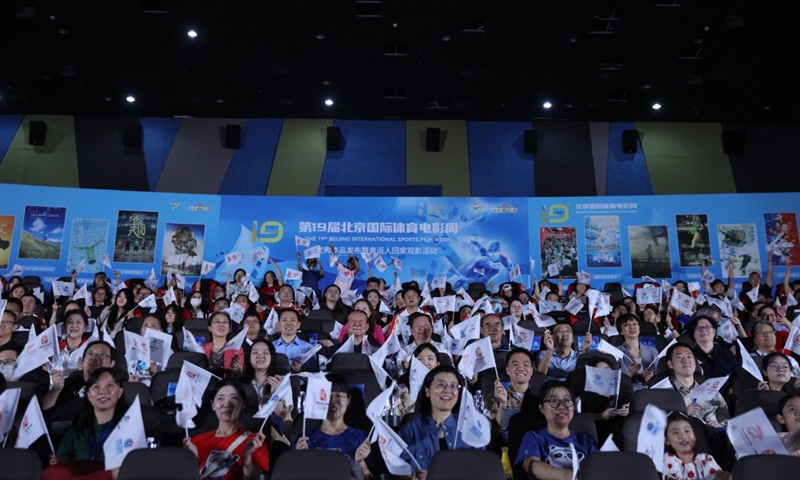
Promotional material of the 19th Beijing International Sports Film Week Photo: Courtesy of Beijing Olympic City Development Association
In a Bloomberg program aired on Tuesday, two hosts attempted to use the current performance of China's film market to cast a shadow over China's economy. However, their views did not gain support from film experts.
On the contrary, the guests maintained a positive attitude toward the Chinese film market and expressed confidence in it. They said that the summer season was at the halfway point, with several major films scheduled for release in August, and so it is too early to draw conclusions.
Indeed, according to Chinese ticketing platform Maoyan, films such as
The Traveller,
Decode,
White Snake: Afloat and
Deadpool and
Wolverine are expected to be released in late July and August and are eagerly anticipated by Chinese moviegoers, which will undoubtedly further boost the summer box office.
In fact, China's current summer season has started to heat up, with the comedy
Successor, starring veteran comedian Shen Teng and Ma Li, already grossing 1.7 billion yuan ($233.6 million) at the box office in nine days.
A Place Called Silence, which focuses on school bullying, and
Despicable Me 4 rank at second and third, respectively. On Wednesday, the total box office for the summer film season surpassed 6 billion yuan.
The program tried to attribute the recent underperformance of Hollywood films in the Chinese mainland to geopolitical tensions.
However, the guests refused to engage in political discussions, emphasizing that the poor performance of Hollywood films is primarily due to quality issues.
They also highlighted the continuous improvement in the quality of domestic Chinese films.
Contrary to the hosts' insinuations, one of the guests - Daniel Manwaring, CEO of IMAX China, denied that China is reducing the import of Hollywood films, instead noting that they are receiving "positive support" from the Chinese side, noting that more Hollywood films are being released simultaneously in China and North America compared to previous years.
Currently, the Chinese film market is developing in a healthy and orderly manner.
As the two guests in the program mentioned, the current film market is fiercely competitive. As the world's second-largest film market, China has become a major engine for the growth of the global film market.
Not only Hollywood, but many film and television companies from various countries regard China as a "sweet cake."
The hosts also attempted to discuss the separation of Hong Kong from China through film, but the guests insisted on viewing the Chinese film market as a whole. CT Yip, CEO of the Media Asia Group said that if the Hong Kong film market wants to improve, it also needs to focus on improving the quality of its films.
Moreover, as the discussion took place when the summer season has barely passed its halfway point, comparing the current data with the entire summer season data from previous years is inappropriate.
Looking at the data from this year's Spring Festival and May Day periods, it is evident that the box-office trend is on an upward trajectory.
According to Maoyan, the box office during the 2024 Spring Festival period reached 8.05 billion yuan, significantly higher than the 6.77 billion yuan of the period in 2023.
Similarly, the box office for the May Day film period in 2024 (1.53 billion yuan) is also higher than the period in 2023 (1.52 billion yuan).
These rebuttals show the program was intended to be one-sided, ignoring the complexity and diversity of the Chinese film market, but the guests who are real players in the Chinese market know it better.
The development of the Chinese film market is influenced by multiple factors and cannot be simplistically attributed to political factors.
Such a report cannot discourage the robust development of the Chinese film market, which has always held an open attitude in film co-production and cooperation with other countries.
The author is a reporter with the Global Times. life@globaltimes.com.cn




